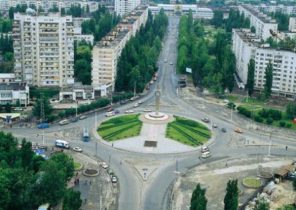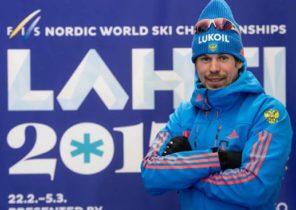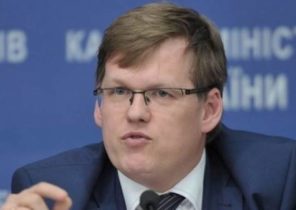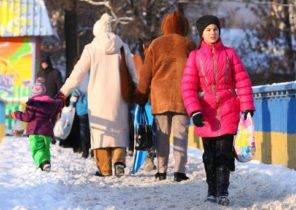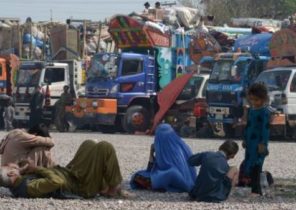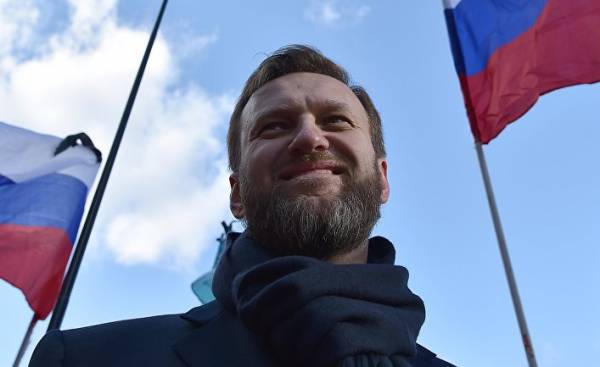
Moscow. — After a strong street protests held in cities of Russia on June 12, you may have question about what more to expect from the Russian opposition. This is one of those rare occasions when you can guarantee the following political forecast: mid-July, no news from the opposition will not.
On 12 June the Russian authorities sentenced opposition leader Alexei Navalny to one month of imprisonment. But in Russia today, none of these opposition leaders.
More recently, the situation was different. In the winter of 2011-2012 against President Vladimir Putin spoke of the opposition from the part of a broad political coalition that emerged as a response to accusations of mass violations during the parliamentary elections. The leaders of the left, right and liberal opposition groups gathered at the same table, and although Alexei Navalny by that time were already very popular, stood next to him for at least a few influential leaders. He wasn’t even the most influential among them. Unlike Boris Nemtsov, Garry Kasparov and Mikhail Kasyanov, Navalny had his party, he did not win the election, and he had no experience in government.
Today, Navalny is the only leader. He became the face of opposition. But if he really is the thorn in the side of President Putin, what you think?
Navalny was an activist in the liberal Yabloko party, but in 2007 it ruled out for participation in xenophobic and nationalist movements, as it defamed the good name of the party. (Once he called Georgian rodents.) Some time after that the Bulk of experimenting with different forms of protest, looking for a theme that is allocated to it on the General background as an opposition activist. He found it: corruption in the Russian government. Legal education and popular blog made Navalny a political superstar of the Internet.
After protests 2012 liberal forces hesitated and began to lose momentum. On rallies and demonstrations in Moscow began to gather fewer people, and liberals failed to win mandates in the elections to local authorities. Having survived numerous crises and splits, the liberal opposition is very much weakened, and old alliances have nothing left. Killed Nemtsov, Kasparov left Russia, and the party Kasyanov showed very poor results in the parliamentary elections of 2016, after which he went into political oblivion.
A Bulk left, returning to his anti-corruption campaign. At the end of 2015, he was accused of corruption, Prosecutor General Yury Chaika, and in March on the Bulk channel in YouTube has a movie about a secret real estate and business development, Prime Minister Dmitry Medvedev. Then he threatened to take to the streets thousands of demonstrators and to achieve the resignation of Medvedev. When Medvedev said he would not comment in response to the charges, Navalny supporters took to protest marches — first, 26 March and then on 12 June. It was the most extensive protests in recent years, and both times the police to disperse them applied maximum force.
This is very similar to the protests five years ago, and the main difference is that the participants today do not represent the diverse political forces. It’s only the supporters of Navalny. For five years he was not only the most popular but also the most active leader of the opposition. He doesn’t need any party or coalition. It is enough hundreds of thousands of online subscribers.
For the first time in his 17 years in power Putin had one main opponent — the dominant leader of the opposition, which is actually very similar to it. As President, Bulk cannot be attributed neither to the left nor to the right. His ideological statements are vague and contradictory. Even simple questions — for example, political status of Crimea — Navalny is trying to answer in General terms.
In working with Navalny supporters prefer an authoritarian leadership style. His closest associates came from among employees of the Fund of struggle against corruption. It is the people whom he pays a salary, and for which he will always be a boss, not a partner (like Putin). Many supporters of Navalny that his personal fans, linking the name of his idol with hopes for the democratic future of Russia. The same can be said about a President who deliberately seeks to make people identify him with Russia. Duma speaker once said: “There is Putin is Russia. No Putin — no Russia”.
Some critics Navalny accused him that he works for the Kremlin. This is hardly the case. But it is possible that Navalny inadvertently serves the interests of Putin.
In 2013, Navalny was released from prison the next morning after he was sentenced to five years in prison, so he could take part in elections of the mayor of Moscow. And when he did not get enough signatures to register as a candidate, it is these signatures are secured Putin’s party. Navalny announced his intention to take part in the presidential elections to be held next spring. Although the law does not allow him to run because of a conviction that was recently confirmed by the Central electoral Commission, such a possibility cannot be ruled out. In Russia, decisions of this kind are not under the law, and in accordance with the needs of the Kremlin. If Putin is going to run, he will have to show that these are real elections, and that he is able to win not only a fictitious enemy, who chooses and the present leader of the opposition.
Putin and Navalny can’t do without each other, and their confrontation somehow transformered in a state of interdependence, the obvious result of which is copying Putin’s leadership model anti-Putin opposition. Putin can be criticized for the destruction of democratic institutions in Russia, the concentration in the hands of the government and the paralysis of civil society. And by this logic, the alternative to Putin should be democracy.
But it works different logic: According to her, Putin is just a bad authoritarian leader, inefficient use his unlimited power, and if it was replaced by a Bulk, in Russia everything would go smoothly — even without democracy. It was at the end of the last century, when Boris Yeltsin became the personification of the democratic hopes of the Russian people. So it is now, but the new hopes of another specific name: Alexey Navalny. But it is fraught with the emergence of a new authoritarian model after Putin.
